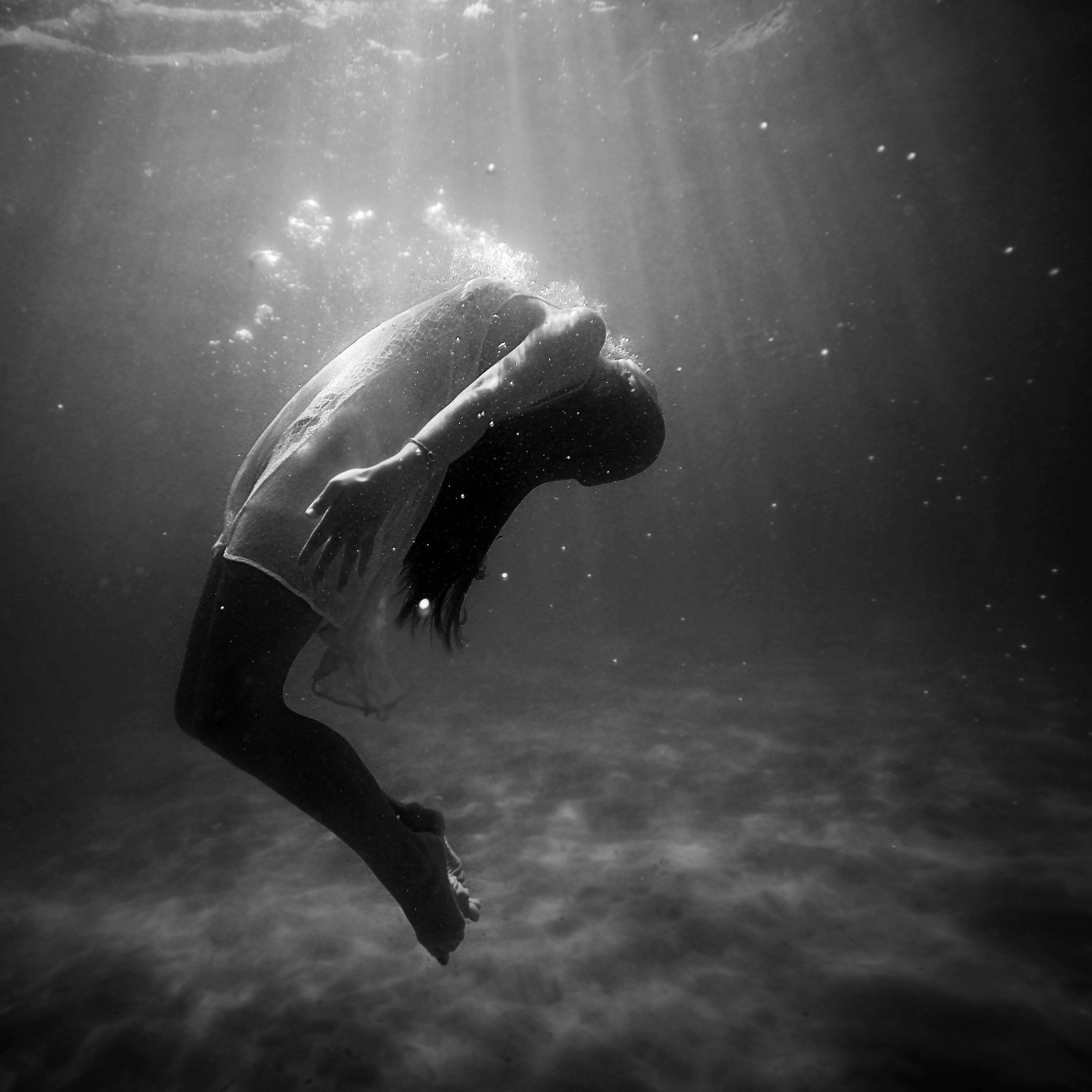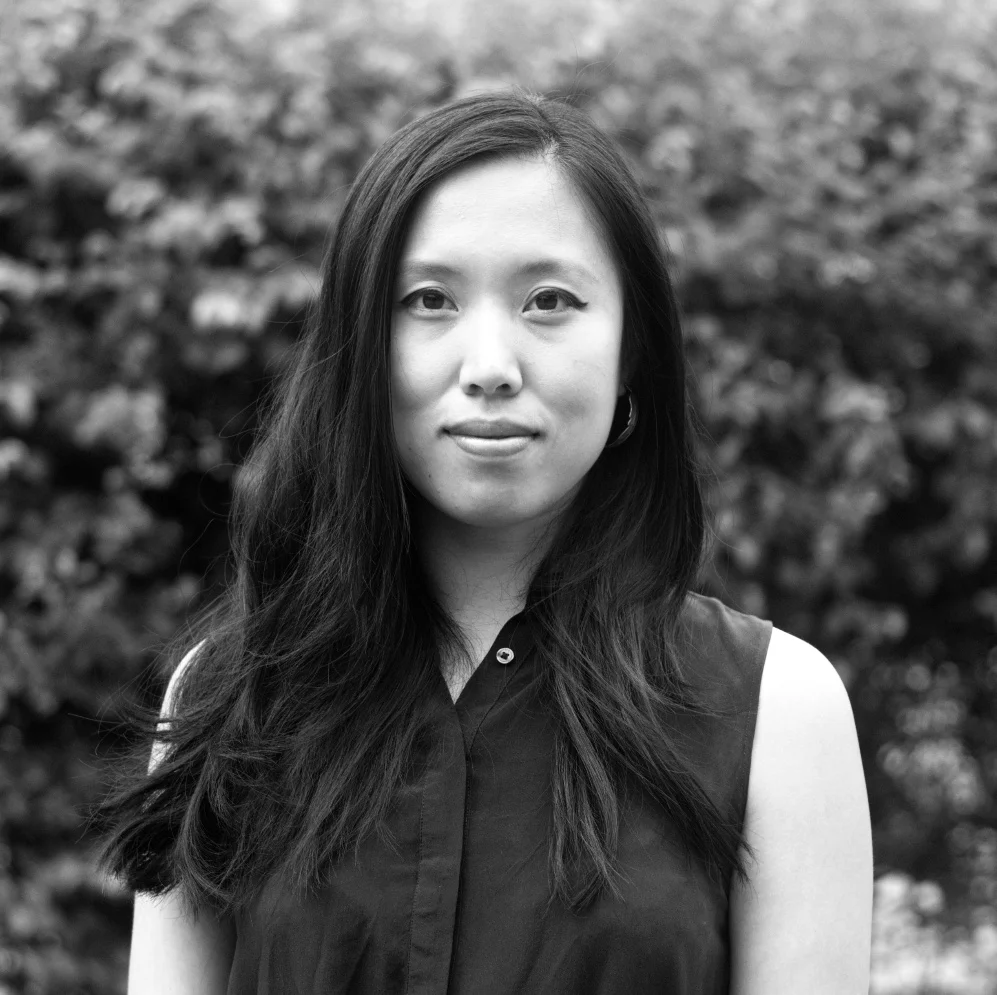Ocean
by Su-Yee Lin
Yesterday, I heard the ocean, but there was no ocean. The sound of the ocean came from down the road, somewhere between Yuyuan and Liujiabang Road. No one else had seemed to notice, but behind the high-pitched beeping of the e-bikes, the sound of metal being welded, and the constant chatter of people, there was the dull roar of ocean, rising and falling.
This is China we're talking about, so maybe it was some sort of large-scale machinery in the distance, the mechanized voices of small parts moving in sync with one another, but I doubt it. The ocean is in Shanghai, and I mean to find it.
Today is different than yesterday, and the time is different as well. The sky is so bright it hurts my eyes, and you can actually see the sun. It was nighttime when I heard the ocean last, but I can't wait for the night to come.
The river is the same as always, and it sounds the way a river sounds—mostly silent but for the waves against the piers. There's a wave of green plants floating atop it, drifting along with the current, making way for the ferries and cargo ships. The plants look like aquatic bok choy, and I heard from someone, probably not very knowledgeable about it all, that they were dredged up by some ships cleaning out the river bottom. Think about all the things one could dredge up to float atop the water. Think about the unfortunate consequences.
Down the Bund, past the historic streets by Yuyuan. There are small shops that sell only socks, and carts that sell only insoles. In the street, there are men flying small drones right over your head, ruffling your hair, as though it'd make you want to buy one. A friend told me once that he'd seen an old grandma lift her bag and smack a drone right from the air, its body coming apart in midair, scattering plastic all around. If only I had that kind of courage. But there is no roar of ocean here.
Further south, past wonton shops and shops selling metal racks like cages. There's a man welding something on the street, the sparks of fire hypnotizing. And then I hear it. The ocean.
I have lived by the ocean my entire life till recently; I know what it sounds like. I can smell the salt tang through the cold breeze. I have not been so long in Shanghai that the smells, the sounds of my life have been replaced by those here. There was a time when the ocean meant so many things and then a time when the ocean meant only one thing, but I think I'm ready to meet it again. Here. In Shanghai.
To the east then, cutting through small alleyways full of different hues of cloth all rolled up—a mosaic of color. The alleyways only allow for foot traffic, but the scooters ride through anyway, pushing the pedestrians up against the doorways of ramshackle houses. You can peer right in—the curtains in the windows are cloths pushed aside. A smear of something unmentionable on the street; I've learned never to look too closely. And despite the chatter of everyday life, I can still hear the ocean. No one else seems to notice, or maybe they're just used to it. It's like the way you can get used to anything—having the ocean in your backyard, white hum of electricity in a room, an illness that comes and goes, a disappearance of a person you love. You get used to it all in time.
There's a small puppy by my feet that wants to play, but I can see a shopkeeper watching. The dogs run free here, but each one belongs to somebody; someone has trained them to avoid the cars and scooters, to ignore the humans who want to pet them, to not fight with the other dogs. They, like us, have a familial responsibility to those who care for them.
My mother once told me a folktale about how the sun had been stolen and hidden inside a lake, so that the sky was perpetually dark. Imagine, she'd said, the lake a black mirror reflecting the sky and, in its very center, just a tiny glow of light. The only light in the world.
A large schoolyard blocks my path. Although I'm sure the ocean is on the other side, one doesn't stroll through a fenced-in schoolyard. Students are outside playing games involving balls or feathers. If I were a child again, I would still be living by the ocean, and the ocean would be a constant. If I were a child again, there would be a mother and a father and a sister.
My mother loved the ocean. She'd go swimming every day, regardless of the weather—in the summer, a swimsuit; in the winter, a wetsuit. She was friends with the ocean; she understood it the way the rest of us never did. We would never have believed it would betray her, until it did. Or at least, we believe so. This is the thing about disappearances. You're never quite sure.
I am rounding the corner now, the calls of the children fading out behind me. I am rounding the corner, and then there is a wall with a gate in it. There's a lock hanging off the gate, but it's unlocked. I think it's for me. The gate creaks as it opens. Nothing is ever noiseless here, rust on every latch.
And of course, there's the ocean.
No longer can I hear the sounds of children or cars. The foam-capped waves roll in onto a short stretch of rock-strewn beach. It makes no sense, this ocean, here in the middle of Shanghai, not far from the Huangpu River, but it's here nonetheless. There is no one else around. I go closer, dip my toes in the water. It looks like the Atlantic—not bright blue and brilliant, but not dirty brown either. Seaweed drifts in, and I see a seagull overhead, just coasting on the wind. This is the ocean I grew up with, an ocean half a world away.
I swim out, and as I look back, I can almost make out my childhood home, right on the beach. I hear the sound of seagulls calling, the faraway bark of a dog that could've been our dog. I can almost see my parents' car in the driveway and my sister tanning under the large polka-dotted beach umbrella, our bright green towels spread out across the sand. And my mother, standing on the beach, waving at me like the sun rising out of the lake—found.
Su-Yee Lin is a writer from New York with publications in The Offing, Day One, Strange Horizons, Tor.com, Bennington Review, Electric Literature, and other literary journals. A 2012 Fulbright Fellow to China, she has also received grants and residencies from the Center for Fiction, Lower Manhattan Cultural Council, Omi International Arts Center, Seoul Art Space, and others. She recently won a Pushcart Prize, and is currently working on a collection of magical-realist short fiction and a novel. More about Su-Yee on her website: https://suyeelin.com.


